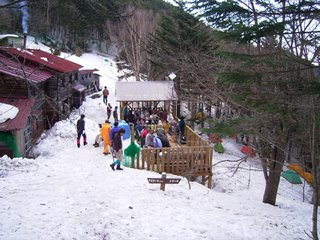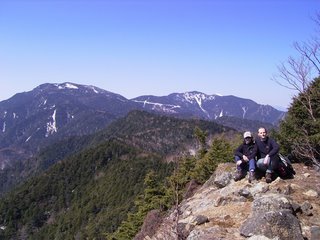Given the lengthy delay, I suppose the decision (rejection) was not that much of a surprise, but the reviews that it was based on leave us feeling like we're somewhere in the twilight zone. The Editor didn't actually explain his decision at all, but merely enclosed the reviews. Maybe it is supposed to be obvious, but we are rather baffled by it all.
There are a total of 3 reviews - itself something of a surprise, as AGU policy indicates that generally only 2 (including the original author) will be used to review a Comment and Reply. Perhaps the 3rd reviewer was some sort of tie-breaker - this would help to explain the delay, but in that case the decision is even more surprising, since Reviewer 3 (a named climate scientist working in this sub-field) strongly recommends publication of this "highly valuable contribution".
Reviewer 1 is Dave Frame, and his review was pretty much as expected. I don't have any major gripes with that, athough perhaps if he was more confident of his ground he could have actually recommended publication rather than not. I'm unconvinced by his promises to sort it all out in forthcoming publications, as he has not conceded on some of the (IMO unarguable) points that we have made.
That leaves the enigmatic Reviewer 2. He spends a full 3 pages on a diatribe about the faults of the original Frame et al paper, a further page criticising their Reply as inadequate and evasive, and only devotes a single page to discussion of our Comment, the gist of which is that we didn't criticise things in quite they way he would have done himself had he bothered to. His summary recommendation against publication is essentially on the grounds that it would be best not to draw attention to the original Frame et al paper because it is so bad!
Unfortunately, the genie is well out of the bottle on that point, with the paper already cited a number of times, including extensively by the IPCC AR4 drafts (I'll probably get my head chopped off for daring to say that). We consider that, given the impact of the paper, it is irresponsible of GRL to not allow our criticism of it to be published - or at least give us a chance to improve our Comment in the light of the reviews received. But regardless, we now feel like we are sitting in the twilight zone, where criticism of Hegerl et al is disallowed specifically because many others have made similar mistakes, and criticism of Frame et al is apparently disallowed because the original paper is so bad it should never have been published. (We should make it clear that we find R2's comments to be rather harsh in this respect - we sense a bit of a power struggle over who should be considered an authority in this field. IOO Frame et al did represent some progress on what had gone before, but also took a step or two backwards in some respects.)
No doubt we will eventually be able to publish our ideas in a stand-alone paper, but it will take time and effort that could have been more fruitfully expended elsewhere. Part of the reason we haven't already done this is the suspicion that some might say our criticism is too trivial to publish, unless we justify it by tying it directly to the existing literature. And if we are going to name and criticise specific authors, it is only reasonable to give the original authors the chance to respond directly in Comment-and-Reply format. But it seems that this is no longer an option. Meanwhile, climate scientists (including, but not limited to, the IPCC authors) press on regardless, blissfully unaware of the problems in what they are doing. They may even feel more strongly justified now in what they are doing, having successfully shaken off some attacks :-(
On the positive side, one more climate scientist (R3) seems to be pretty much on-board and on-message (I only used these buzzwords to annoy jules who hates them). On top of one more who we've had some recent email correspondence with, there are some signs that the tide will start to turn eventually. Jules and I have been fortunate enough to get invited to a workshop in the UK later this month on uncertainty and probability in climate science. I'm sure these issues will get a good airing there - unfortunately, it coincides with an IPCC lead author meeting, so some of those who need to hear it most urgently will not be able to do so!




